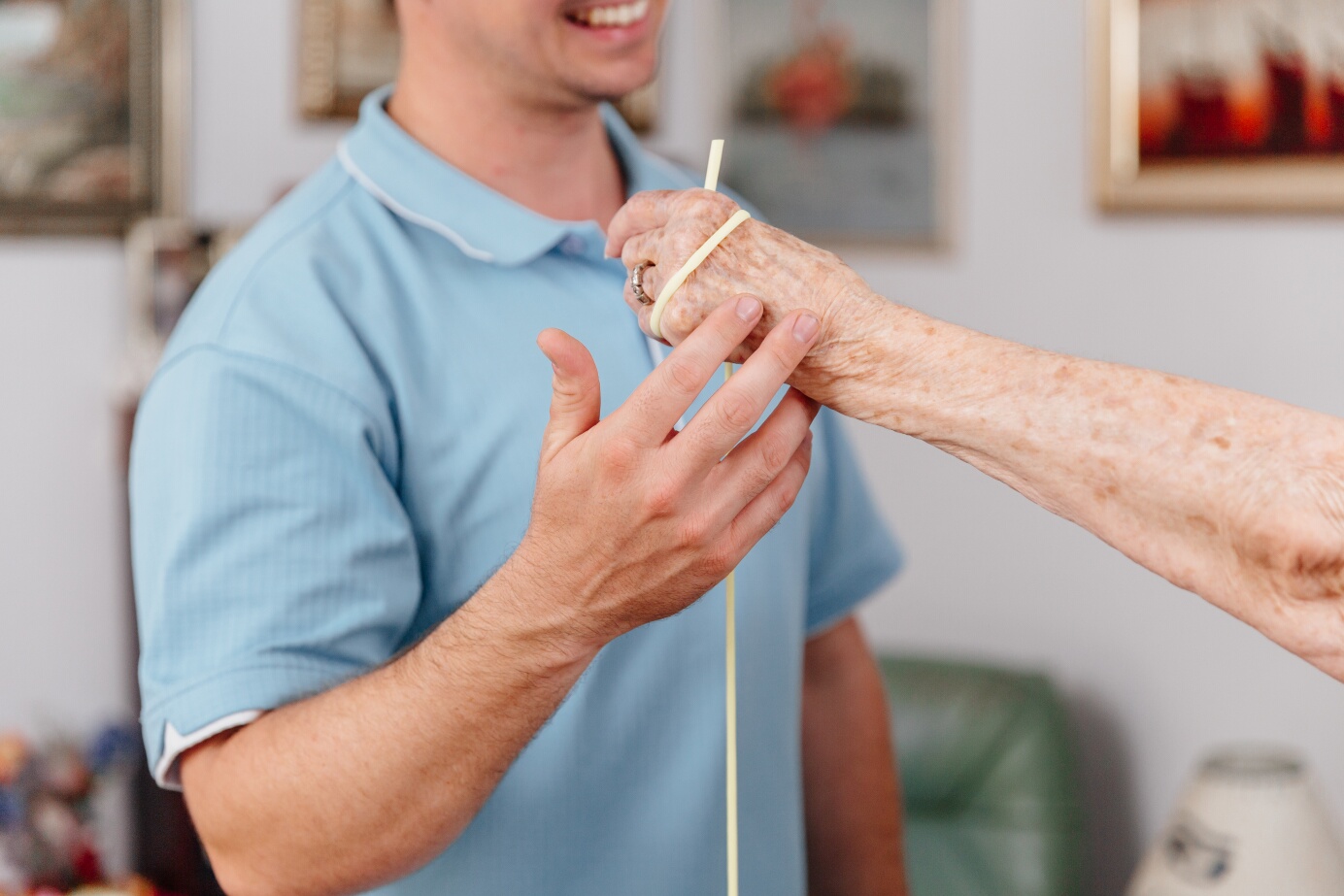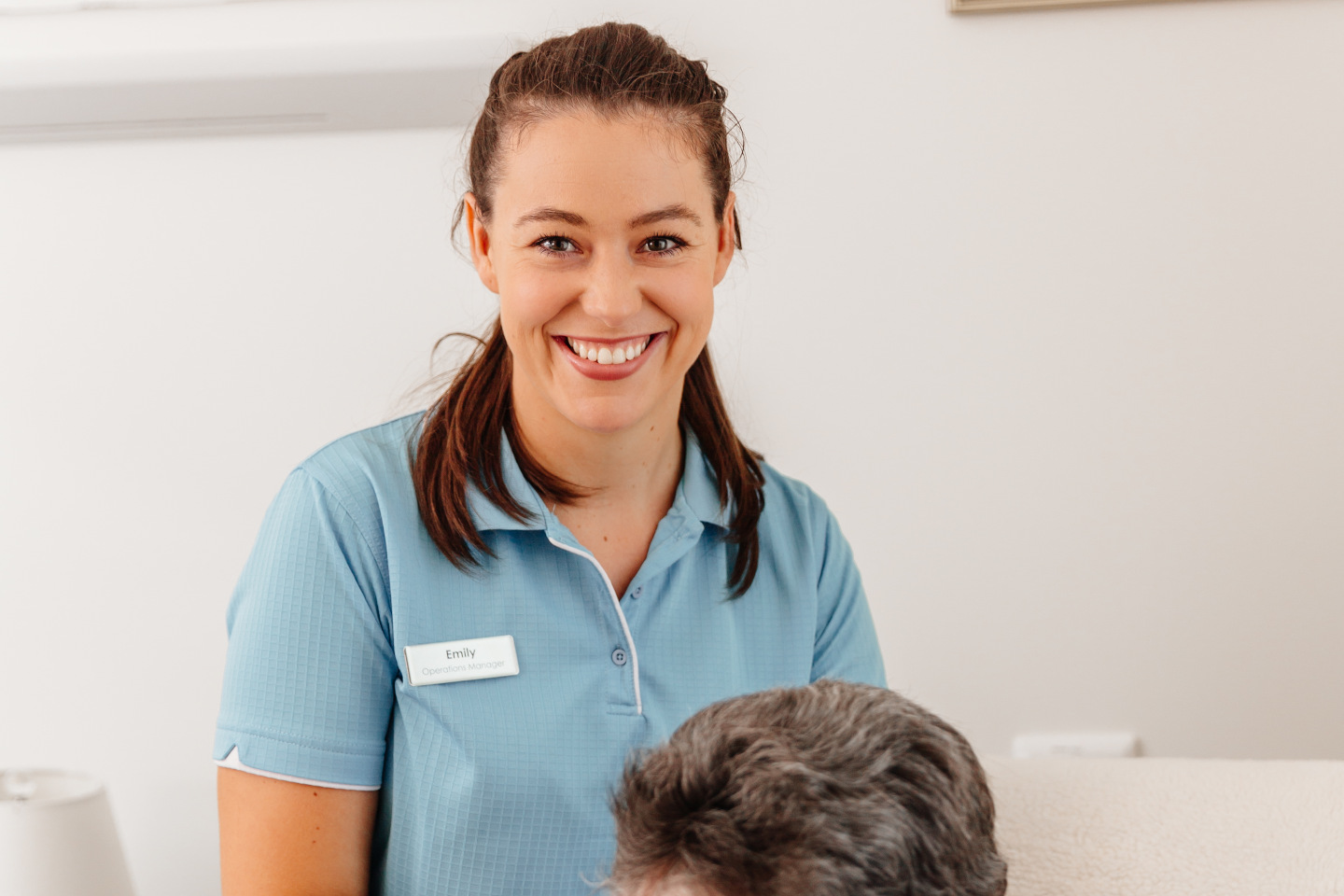Providing Physiotherapy to Newcastle
Community Therapy provides mobile Physiotherapy services to Newcastle. Our amazing team engage with many different clients including older adults, people living with disabilities and people recovering from surgery and after hospitalisation at home. Our company is a NDIS registered provider and we are certified by SAI Global. We partner with home care providers and residential aged care facilities.
Many of our physiotherapists have grown up and lived in Newcastle. We are passionate about providing our physiotherapy services to the Newcastle community and helping those people in need. The majority of our staff are Novocastrians and are Alumni from The University of Newcastle. We appreciate the opportunity to create a positive impact on the healthcare of the region.
Mobile throughout Newcastle
Providing Physiotherapy to Newcastle
Community Therapy has developed a reputation as a leading Newcastle physiotherapy provider. Community Therapy has a mobile workforce of allied health professionals that cover the entirety of Newcastle providing allied health services. Our business is registered with the APA, AHPRA and also are a NDIS registered provider.
When you contact Community Therapy, we are prompt to respond to inquiries and referrals. If we are unable to assist you we will point you in the right direction. Our physiotherapists possess current criminal record checks and working with children checks. They also hold their own public and professional indemnity insurance.
The Community Therapy team undergo regular, ongoing professional development in the aged care and disability sectors to ensure we are up to date with current evidence. This allows our allied health professionals to have the best skills to help our clients achieve their goals.
How does Physiotherapy help?
At Community Therapy, we primarily help people improve their strength, mobility, balance and endurance and of course we help decrease and manage pain! We focus on long term, positive outcomes and believe in ‘person-centred care’. We address our clients physical, sensory, cognitive, social & psychological health at an individual level to maximise our client’s quality of life. Importantly, we actively listen to the client and performing our job with a positive approach.
Our allied health professionals are mobile across the eastern and western sides of Newcastle and Lake Macquarie. Our team live locally and provide physiotherapy services to the local community living in Newcastle.


Monitoring Physiotherapy Results
Our Newcastle Physiotherapists will conduct a preliminary assessment of a client prior to providing ongoing assistance. Our team utilise outcome measures to find someone’s baseline or starting point in their rehabilitation journey. This is critical when it comes to measuring change over time and thus demonstrating improvement. Some changes can be identified by clients (eg performing an action they could not do a month ago) instantly while other improvements are impossible to notice.
One of the outcome measures we frequently use is the Berg Balance Scale (BBS). The BBS is a 14-item objective measure of balance in adults. It is a well-researched and quantifiable way of determining the level of someone’s balance, and also of identifying where deficits in their balance exist. As such, it enables comparative scores across time, which in turn enables us to establish whether a program that someone is undertaking is demonstrably effective.
If you live in Newcastle and would like to book in a physiotherapy assessment for yourself or would like to refer someone to us please call on 1300 031 935
Suburbs We Service in Newcastle
-
Comprehensive Suburb List
- Adamstown
- Adamstown Heights
- Arcadia Vale
- Argenton
- Awaba
- Balcolyn
- Balmoral
- Bar Beach
- Barnsley
- Belmont
- Bennetts Green
- Beresfield
- Birmingham Gardens
- Black Hill
- Blackalls Park
- Blacksmiths
- Bolton Point
- Bonnells Bay
- Boolaroo
- Booragul
- Brightwaters
- Broadmeadow
- Buttaba
- Callaghan (University)
- Cameron Park
- Cams Wharf
- Cardiff
- Carey Bay
- Carrington
- Catherine Hill Bay[n 4]
- Caves Beach
- Charlestown
- Coal Point
- Cooks Hill
- Cooranbong
- Croudace Bay
- Dora Creek
- Dudley
- Edgeworth
- Eleebana
- Elermore Vale
- Eraring
- Fassifern
- Fennell Bay
- Fishing Point
- Fletcher
- Floraville
- Freemans Waterhole
- Garden Suburb
- Gateshead
- Georgetown
- Glendale
- Hamilton
- Hamilton East
- Hamilton North
- Hamilton South
- Hexham
- Highfields
- Hillsborough
- Holmesville
- Islington
- Jesmond
- Jewells
- Kahibah
- Kilaben Bay
- Killingworth
- Kooragang
- Kotara
- Kotara South
- Lakelands
- Lambton
- Lenaghan
- Little Pelican
- Macquarie Hills
- Mandalong
- Marks Point
- Marmong Point
- Martinsville
- Maryland
- Maryville
- Mayfield
- Mayfield West
- Merewether
- Merewether Heights
- Minmi
- Mirrabooka
- Morisset
- Morisset Park
- Mount Hutton
- Myuna Bay
- New Lambton
- New Lambton Heights
- Newcastle
- Newcastle East
- Newcastle West
- Nords Wharf
- North Lambton
- Pelican
- Pinny Beach
- Rankin Park
- Rathmines
- Redhead
- Silverwater
- Ryhope
- Sandgate
- Seahampton
- Shortland
- Speers Point
- Stockton
- Sunshine
- Swansea
- Tarro
- Teralba
- The Hill
- The Junction
- Tighes Hill
- Tingira Heights
- Toronto
- Valentine
- Wakefield
- Wallsend
- Wangi Wangi
- Warabrook
- Waratah
- Waratah West
- Warners Bay
- West Wallsend
- Whitebridge
- Wickham
- Windale
- Windermere Park
- Woodrising
- Wyee
- Wyee Point
- Yarrawonga Park
Frequently Asked Questions
-
What boards are your Physiotherapists a member of?
Community Therapy Physiotherapists maintain certification with the Australian Health Practitioner Regulation Agency (AHPRA). This is a mandatory, yearly certification.
Many of our Physiotherapists are members of the Australian Physiotherapy Association, who advocates for physiotherapists and the public, as well as direct the continuing education of the profession.
Scott Lynch (B Physiotherapy), the Managing Director and founder of Community Therapy is the Chair of the APA NSW Gerontology Committee as well as Vice Chair of the APA Gerontology National Committee.
-
Do I see the same clinician or can it change?
Community Therapy prides itself on maintaining the stability of our care for the clients that we service.
The vast majority of the time, you will be seeing the same Physio. The exception to this would be times our clinicians are unwell or on leave.
-
Do we always meet at my residence or can we meet somewhere else?
Most commonly, our mobile Physiotherapy service will take place at at client’s home. However, our Physiotherapists conduct therapy at other locations such as a local gym, pool or in the community.
As an example, it may be your goal to leave home, walk 800m to the bus stop, board the bus, visit the shops and return home independently. A session may actually be trialing this.
Another example may be supporting a person who wishes to access a gym, in which case, our clinicians will attend the gym with the person.
-
What is a functional rehabilitation program, and can you give an example?
A functional rehabilitation program simply refers to a program of exercises put together by a Physiotherapist in order to improve someone’s overall physical function.
The focus here is on the functional outcome.
For example, a client may have established a goal of being able to confidently move down to the floor level and up again. This may relate to their ability to stand up if they have a fall, or to activities they want to include in their life such as gardening or cleaning.
In this case, their functional rehabilitation program would include exercises (such as lunges) to strengthen the lower limbs and increase capacity when it comes to the functional task of moving down to the floor and standing back up.
-
How do you allocate your Physiotherapists for each individual?
At Community Therapy, we consider it important to know and understand our client’s preferences.
We understand that some clients may have preferences, for example, to see a female or a male clinician, ask us to note religious beliefs, etc.
We respect each client’s individual preferences and will book or allocate clinicians depending on a person’s preferences where possible. In the rare circumstance that we are unable to meet a person’s preference, we will advise them in advance of their appointment in order to give them an opportunity to choose to either proceed or take an alternative path.
-
In what ways are the Physiotherapy sessions fun and engaging?
At Community Therapy we are always conscious of making sessions not only evidence-based for success, but also fun and engaging as well.
The people we hire play a large role in this; we typically recruit Physiotherapists who are fun and interesting people. This goes a long way to ensuring that our clients have positive and uplifting experiences with us.
In addition, we work hard to ensure that we are always involving the best equipment that our clinicians can access. For example, we have invested in the ‘Blaze Pod’ systems for our team, which is an innovative light sensor system designed to train people’s reactions and build agility. It has been developed to not only be very effective in improving physical function, but also to be a fun activity to undertake.
-
Can you help with post-surgery rehabilitation?
Yes.
Helping people to recover from surgery is part of our scope of practice for both our Occupational Therapists and our Physiotherapists.
We help people to recover from a range of surgeries including knee replacement, hip replacement, abdominal surgery, shoulder replacement and rotator cuff repair.
Community Therapy engages with private health insurers and third-party referrers to support home rehabilitation programs, particularly when it comes to full hip and full knee replacements.
(Research has shown that people who are recovering from total knee or total hip replacements will typically achieve better outcomes when having their rehabilitation in the home).
-
Can you describe your Physiotherapy process in detail?
Please feel free to make your referral through our referral page or phone us on 1300 031 935.
The first stage of the process is to ensure that we’re the suitable provider to consider. Please note that we work best with adults (over 18) and our service areas are the greater Hunter, Central Coast and Port Stephens regions.
We will discuss the person’s medical conditions, current situation and goals they would like to achieve with Physiotherapy.
If the person wishes to engage Community Therapy, we will organise an initial appointment.
A Physiotherapist from Community Therapy will see the person at their home to conduct an initial assessment. The assessment usually takes between 60-90 minutes to complete.
The initial assessment will involve communicating about the clinical (or NDIS) plan and any medical records relating to the person’s health conditions. We will begin to understand what goals the person wants to move towards, as well as the therapy that should be utilised.
If you are an NDIS participant, we will discuss your current NDIS plan and how Physiotherapy fits into it. This will involve signing a service agreement and booking regular appointments to complete your Physiotherapy sessions.
After the initial assessment, the following sessions involve performing Physiotherapy, exercise and/or rehabilitation programs.
The Physiotherapist will provide self-directed exercises that are safe for clients to complete, either independently or with the assistance of a family member, care staff or other.
The Physiotherapist will visit the client at an agreed frequency.
The frequency is typically weekly or fortnightly, however, some people may be reviewed at longer intervals, depending on their condition.
For our NDIS participants and home care clients, we provide comprehensive reports to inform your NDIS plan or home care plan of what has been achieved and what we are aiming to be achieved in the future.



